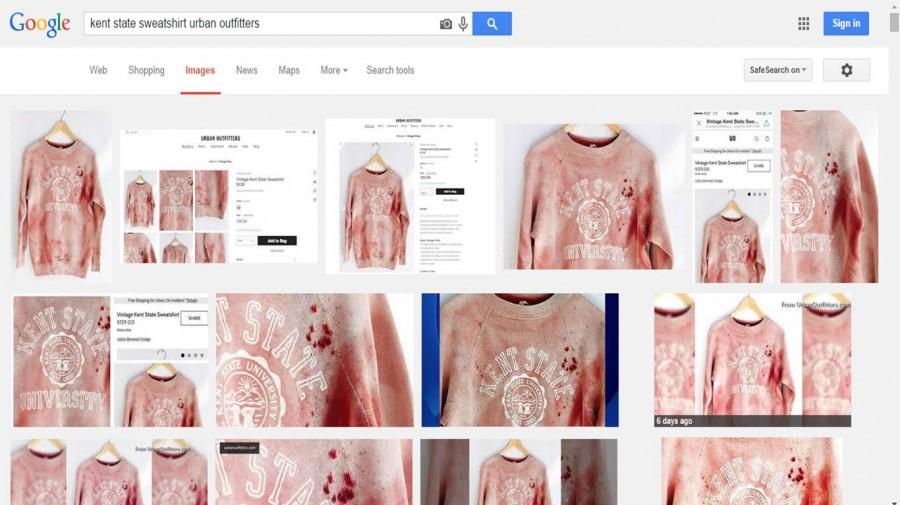Fashion Gone Too Far
Urban Outfitters stirs up controversy pertaining to the Kent State shootings
Urban Outfitters has always been known for unique, ‘hipster’ clothing. But sometimes unique design stirs up controversy, as with the September 15th web promotion of a shirt commemorating the Kent State Shootings.
Over the years, Urban Outfitters has racked up a stack of lawsuits for offensive and demeaning merchandise. Among the most controversial were the shirt color named ‘Obama/Black’, a shirt promoting anorexia with the slogan “eat less”, a Star of David t-shirt representing the badges that the Jews were forced to wear in the Holocaust, shirts with pro-alcohol slogans for children, and prescription bottle shot glasses promoting drug abuse.
The most recent incident involves a Kent State sweatshirt with blood stains on it alluding to the shooting of 1970. On May 4, 1970, four students were shot and killed by the National Guard during Vietnam War protests. Urban Outfitters insists that the shirt was not designed to look bloody, simply faded and old.
“I think [the offensive merchandise] is stupid and wrong, they should not do things like that,” Junior Kristina Harlow said. “[I think they should take the clothing off the website], I don’t think more people should be able to buy it.”
Kent State is very offended and upset that Urban Outfitters would turn their tragedy into a fashion statement.
“We take great offense to a company using our pain for their publicity and profit,” Kent State officials said. “This item is beyond poor taste and trivializes a loss of life that still hurts the Kent State community today.”
“I think that [the shirt] is rude and inconsiderate to the people involved in the accident,” freshman Shelby Oke said.
The fact that this repeatedly happens definitely gives off a certain air about the store. The CEO, who also owns Free People and Anthropologie, is very controversial and people question his decision making as well as the company’s.
“Their repeated decisions to produce goods that are offensive demonstrates a lack of empathy and social responsibility,” said Autumn Francis, the Family and Consumer Science teacher. Francis also believes that creating controversial merchandise is a means of publicity for the company.
The frequent offensive merchandise affects how people view the store and for some if they would spend their money there or not.“I do not and would not shop there,” Oke said.































